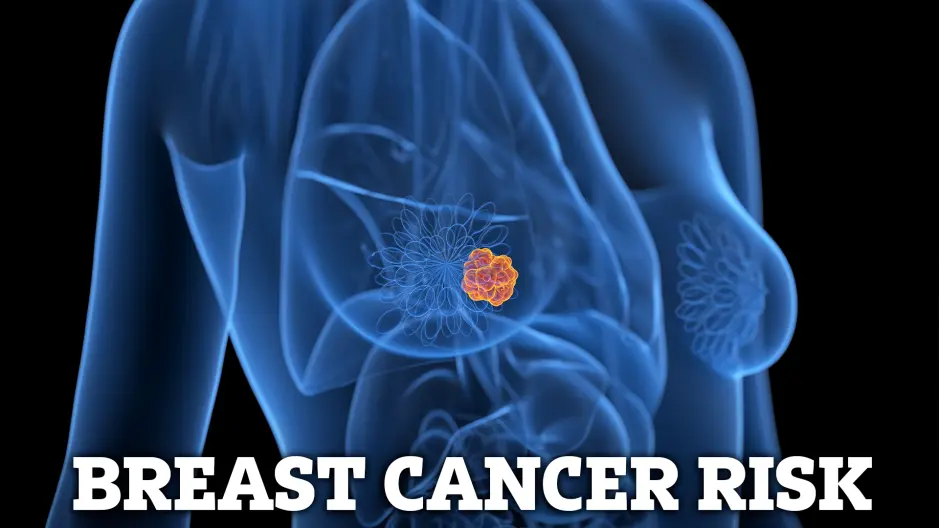AI-Powered Diagnostics Revolutionize Healthcare: How Cutting-Edge Technology is Detecting Diseases Faster Than Ever
- Tech Brief

- Feb 8
- 4 min read

Artificial Intelligence (AI) is increasingly transforming healthcare diagnostics by enhancing the accuracy, speed, and efficiency of disease detection and patient care. Recent developments demonstrate AI's significant role in early disease detection, personalized treatment plans, and alleviating the workload of healthcare professionals.
In the United Kingdom, the National Health Service (NHS) has initiated an £11 million trial employing AI to improve breast cancer screening. This program aims to analyze breast scans more effectively, potentially enabling earlier detection of abnormalities and allowing radiologists to identify cancers at earlier stages. If successful, this trial could be expanded across the NHS, aiming to enhance early cancer detection and reduce the burden on the healthcare system.
Private companies are also contributing to AI-driven diagnostics. Swedish start-up Neko, valued at $1.7 billion, is working to revolutionize healthcare with comprehensive checks in a spa-like setting, aiming to cater to health-conscious consumers. Similarly, US companies like Ezra and Prenuvo, and the UK's Scan.com, are expanding MRI-based diagnostic services. While these services offer potential benefits, they face criticism for being costly and potentially inequitable. However, reliable private providers could ease the burden on public health services.
AI's integration into healthcare is not limited to diagnostics; it also plays a crucial role in enhancing communication between healthcare providers and patients. Tools that transcribe consultations and chatbots monitoring patient health post-discharge exemplify AI's potential to improve patient engagement and follow-up care. Despite its transformative potential, AI's role in administrative tasks lacks attention and funding, especially in systems like the UK's NHS, indicating significant opportunities for investment in automating back-office processes.
These advancements underscore AI's growing influence in healthcare, promising improved patient outcomes, personalized treatment plans, and more efficient healthcare delivery.
Sources
1. 'Landmark' moment as NHS clinics use AI to 'detect breast cancer cases earlier and faster'
The NHS is launching an £11 million trial using AI to screen for breast cancer, involving nearly 700,000 British women. The AI technology will compare new breast scans with thousands of previous scans to detect abnormalities early, potentially allowing one radiologist to do the work of two and spot more cancers in their early stages. If successful, this trial, starting in 30 clinics in England, could expand to the entire NHS. The initiative aims to enhance early cancer detection, accelerate diagnosis, and reduce the burden on the healthcare system. Breast cancer is the most common cancer in women, with approximately 57,000 new cases annually. Early detection significantly boosts survival rates, with three-quarters of patients living for at least 10 years post-diagnosis. Amidst a significant radiologist shortage, the Royal College of Radiologists advocates the adoption of AI in healthcare. The Health Secretary will also announce a call for evidence for a National Cancer Plan on World Cancer Day.
2. Overstretched healthcare should welcome the rise of the AI body scan
Early detection of health conditions, particularly cancer, significantly improves survival rates and outcomes. The NHS in Britain is incorporating AI-based platforms, such as Edith, to accelerate breast cancer screenings. Private companies are also entering the health screening market, aiming to cater to health-conscious consumers. Swedish start-up Neko, valued at $1.7 billion, aims to revolutionize healthcare with comprehensive checks in a spa-like setting. US companies like Ezra and Prenuvo and UK’s Scan.com are expanding MRI-based diagnostic services.
Despite their potential benefits, private health scanning services face criticism for being costly, potentially inaccurate, and inequitable. A 2022 study highlighted issues like false positives and over-diagnosis. Nevertheless, reliable private providers could ease the burden on public health services. Anita Charlesworth advocates for recognizing preventive care investment as capital spending to enable long-term societal and economic benefits. Effective integration of private and public health services could enhance accessibility and affordability of essential screenings, though sufficient treatment capacity remains a challenge for aging populations.
3. The doctors pioneering the use of AI to improve outcomes for patients
Artificial Intelligence (AI) is becoming increasingly influential in the healthcare industry, aiming to improve patient outcomes and operational efficiency. AI's potential is profound in areas such as diagnostics and imaging, where it enhances the speed and consistency of interpreting medical scans. However, experts like Axel Heitmueller and Pranav Rajpurkar believe that combining AI with human expertise yields the best results, and complete eradication of medical errors remains an ambition. AI is also advancing personalized treatment, as seen in the TRUSTroke project in Europe, and in diagnosing rare diseases.
Moreover, AI is enhancing communication between healthcare providers and patients, exemplified by tools that transcribe consultations and chatbots like Lola, which monitor patient health post-discharge. Despite its potential, AI's role in administrative tasks, although transformative, lacks attention and funding, especially in systems like the UK's NHS. There remains significant opportunity for investment in automating back-office processes to leverage AI's full potential in healthcare.
4. AI may help spot deadly diseases more precisely
The South Australian Medical Imaging (SAMI) sites have integrated artificial intelligence (AI) from Annalise.ai to assist with chest X-ray diagnoses, marking the first statewide implementation in Australian public health imaging. Described as a "spell check" for X-rays, the AI identifies areas of interest in chest images and offers potential diagnoses, which radiologists will review and finalize. The technology is utilized across six metropolitan and four regional hospitals, providing comprehensive imaging services at no cost. SAMI's clinical director, Associate Professor Marc Agzarian, emphasized the advancement in patient care due to the AI's precise diagnostic capabilities and support in clinical decisions. Annalise




Comments